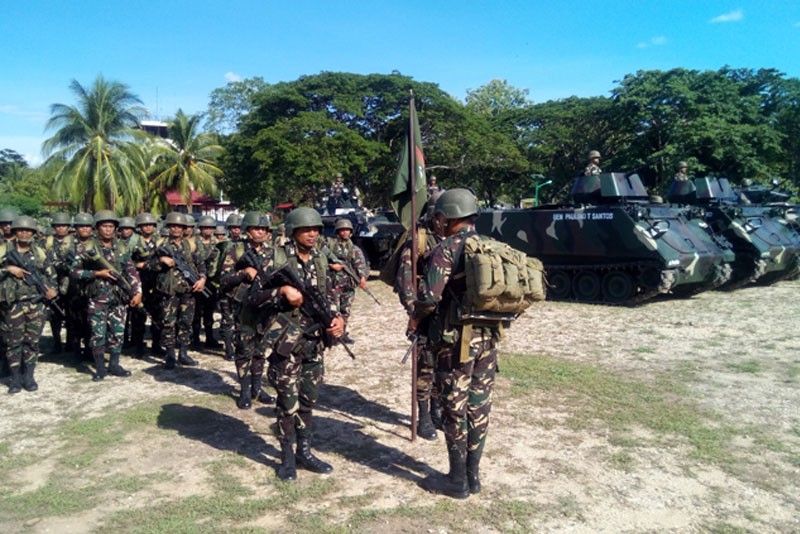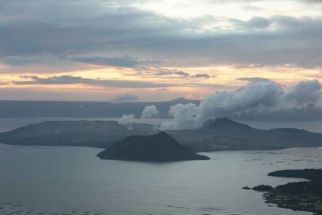Planned military offensives behind peace talks cancellation — CPP

MANILA, Philippines — The unilateral cancellation by President Duterte of the scheduled resumption of peace negotiations on June 28 was made in view of the Armed Forces of the Philippines (AFP)’s plan for an all-out military offensive until the end of 2018, the Communist Party of the Philippines (CPP) said yesterday.
“By calling off the scheduled peace negotiations with the National Democratic Front, Duterte aims to give the AFP more time to complete its military campaign plan for 2018 of mounting bigger offensives under Oplan Kapayapaan in the hope of crippling the NPA (New People’s Army) and inducing the NDF to negotiate a surrender,” the CPP said in a statement posted on its website.
Last Friday, Duterte unilaterally cancelled the scheduled talks with the NDF after being briefed on the status of Oplan Kapayapaan in a meeting with the top brass of the AFP and defense officials.
Defense Secretary Delfin Lorenzana has publicly announced that the military wants three to six more months before talks resume with the NDF.
In cancelling the talks, Duterte said he first wants to hold public consultations.
“This narrow pretext is a thin veil that fails to conceal his real aims,” the CPP said.
The CPP said Duterte wants the AFP to rush its all-out offensives against the NPA.
The CPP said the AFP has recruited at least 5,000 troops last year and seeks to add 10,000 more until the end of the year.
Duterte is enabling the AFP to employ Marawi-style tactics of employing an overwhelming force to wage all-out war against civilian populations in order to claim and control their land, the party said.
“Even now, the AFP is mounting large-scale offensives nationwide, laying siege on several hundred rural barangays, targeting civilian populations, occupying schools and barangay halls, and unleashing its fascist brute force against unarmed people. The AFP carries out aerial bombings, artillery shelling, drone flying and other methods of intimidating the masses,” the CPP said.
“Extrajudicial killings and other grave abuses of human rights and international humanitarian law run rampant,” the CPP said. “Tens of thousands of peasants and national minority groups have been forced to leave their lands.”
The CPP said that in Talaingod, Davao del Norte, one of the AFP’s “focus areas,” three battalions of army troops swarm the town’s three barangays.
The CPP said that Talaingod is nestled in the Pantaron mountain range where the Manobo are struggling to defend their ancestral land.
“With their overwhelming presence, fascist combat troops of the AFP aim to intimidate the people, force them to ‘surrender,’ force them to leave their communities in order to seize control of the people’s land and resources,” the CPP said.
The group said other focus areas of the AFP are the Moro areas surrounding Liguasan Marsh, Quezon town, Bukidnon; Bilar town, Bohol, General Nakar and several towns in Bondoc peninsula in Quezon.
“Clearly, Duterte does not want the AFP’s military campaign plan disrupted by the peace talks,” the CPP said.
Formal peace negotiations were scheduled to resume on June 28 as agreed upon by the NDF and government negotiating panels after close to four months of backchannel talks.
A stand-down agreement was signed on June 8 and supposed to take effect one week before the opening of formal talks.
Agreements on a timetable and guidelines for resuming talks and forging an interim peace agreement (IPA) were also signed by both parties and witnessed by the Royal Norwegian special envoy.
The Interim Peace Agreement was expected to integrate three components: an agreement on agrarian reform and rural development and national industrialization and economic development, an amnesty proclamation to be certified as urgent to effect the release of all political prisoners, and a coordinated unilateral ceasefire.
- Latest
- Trending




























